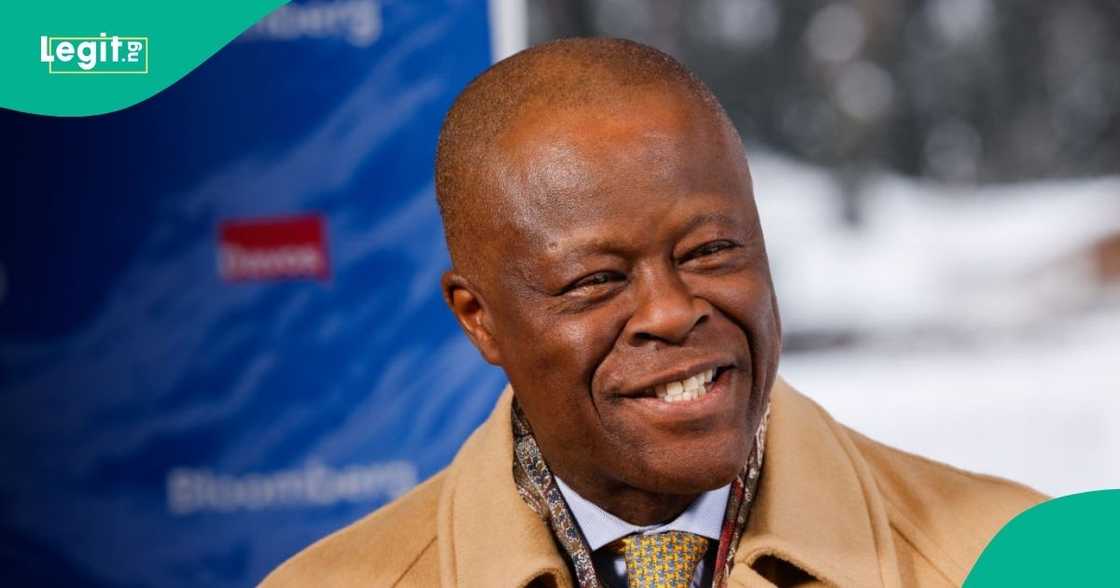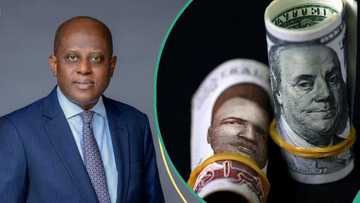- The Nigerian government has suspended the controversial Free-On-Board (FOB) levy introduced by the Nigerian Customs Service
- The government announced the decision in a memo issued by the Minister of Finance and Coordinating Minister of the Economy, Wale Edun
- The levy, which was introduced early this year, has generated controversy among Nigerians, importers and stakeholders
Pascal Oparada, a reporter for Legit.ng, has over ten years of experience covering technology, energy, stocks, investment, and the economy.
The Federal Government has suspended the planned implementation of the 4% Free On Board (FOB) charge on all imports, a move that has been widely welcomed by importers and trade stakeholders.
The decision was announced in a memo (Ref. No. F6380/T/12) issued by the Minister of Finance and Coordinating Minister of the Economy, Wale Edun, on September 15, 2025.
Credit: State House.
Source: Facebook
Why the 4% FOB levy was controversial
The suspension followed weeks of consultations with industry players, trade experts, and government agencies, who warned that the levy could trigger significant disruptions in the country’s already fragile trade environment.
The FOB charge would have required importers to pay an additional 4% of the value of goods being imported into Nigeria.
Business groups argued that the levy would increase the landing cost of imported goods, feeding directly into higher market prices for essential commodities, machinery, and raw materials.
Critics also warned that the policy could worsen inflation, reduce Nigeria’s trade competitiveness, and push many small import-dependent businesses to the brink of collapse.
According to some stakeholders, the levy risked turning Nigeria into one of the most expensive markets in West Africa for imports, at a time when businesses are already struggling with forex challenges, tariffs, and rising logistics costs.
Finance Ministry promises fresh review
In his statement, Edun admitted that implementing the levy at this time posed “significant challenges” to Nigeria’s trade facilitation environment and broader economic stability.
“This suspension will provide an opportunity for a comprehensive stakeholder engagement and a thorough review of the levy’s framework and its broader economic implications,” the memo read.
He added that the ministry would work with the Nigeria Customs Service (NCS) and other agencies to design a more equitable and efficient revenue model that balances the government’s fiscal needs with economic growth.
Impact on imported goods and prices
For businesses, the suspension of the levy could provide short-term relief on costs, particularly in sectors heavily reliant on imports such as food, pharmaceuticals, electronics, and automobiles.
Many traders expect this move to ease pressure on prices, especially for consumer goods that would have become more expensive under the levy.
Economic analysts, however, note that while the suspension is positive, Nigeria still faces broader structural challenges, such as high port charges, forex instability, and overlapping import duties, that continue to raise the cost of doing business.
Wider economic implications
The policy reversal comes against the backdrop of Nigeria’s ongoing efforts to stabilise the naira and curb inflation, which recently dropped to 22.12% according to official figures.
Analysts believe the suspension of the FOB levy is part of a wider strategy by the Tinubu administration to ease cost pressures on businesses while seeking more sustainable revenue-generation methods.
Still, the controversy has raised fresh questions about Nigeria’s trade policy direction. Importers argue that the government must prioritise efficiency at ports, transparent customs processes, and fair tariff structures if it hopes to create a competitive business climate.
What Nigerians should expect
While the suspension has been celebrated, stakeholders are urging the government to permanently scrap the levy rather than keep it on temporary hold.
The outcome of the planned stakeholder engagement will likely determine whether the policy is modified, reintroduced, or abandoned entirely.

Credit: Bloomberg/Contributor
Source: Getty Images
For now, Nigerian importers and consumers alike are breathing easier—at least until the next policy shift.
CBN releases new Customs rate to clear goods
Legit.ng earlier reported that the Central Bank of Nigeria (CBN) has adjusted the Customs foreign exchange rate for importers to clear goods at Nigeria’s air and seaports.
The new rate comes amid the naira’s massive gain against the US dollar on Thursday, June 5, 2025.
Data from the Customs trade portal shows that the apex bank crashed the Customs exchange rate in line with the recent naira gains.
Source: Legit.ng




